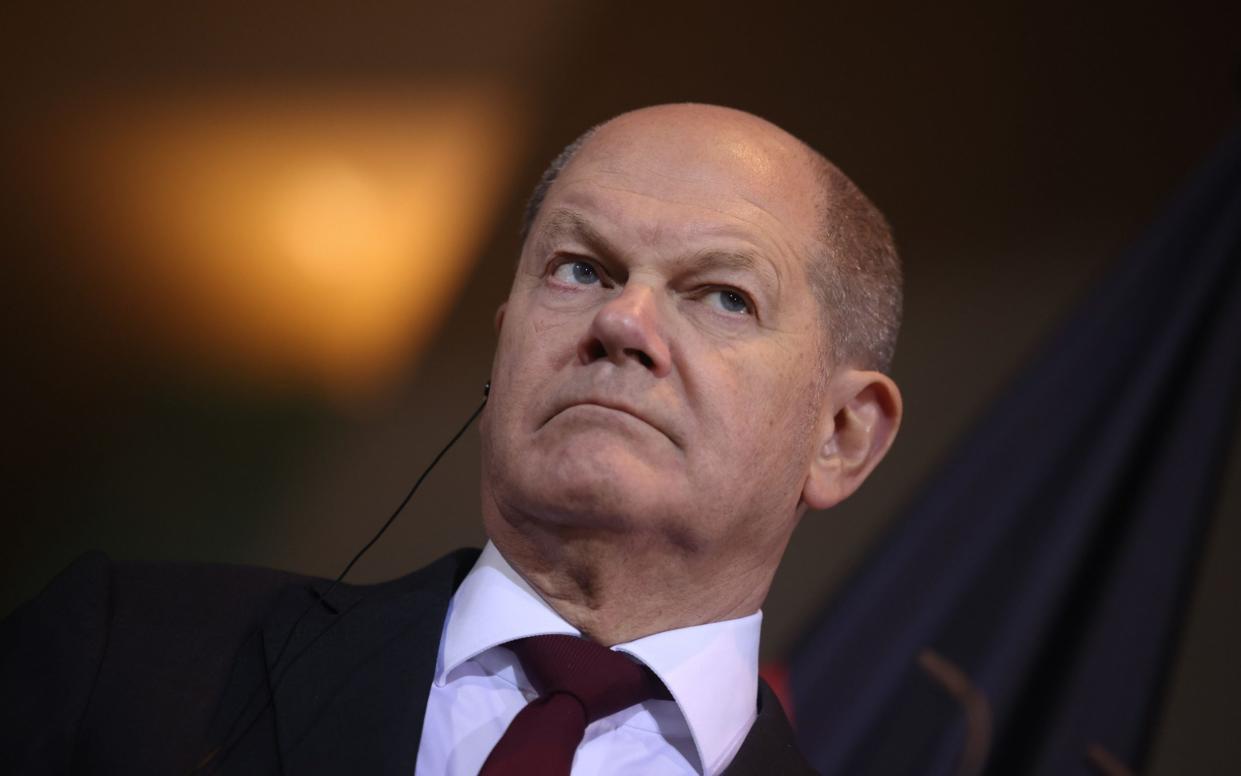Germany is the sick man of Europe – and the prognosis is grim

Few countries are more aware than Germany of how important it is to keep public finances in order. But few countries have indulged in more creative accounting. As Germany’s highest court ruled current spending plans unconstitutional, it finally destroyed the nation’s cherished myth of fiscal prudence. The stakes could not be higher for Germany and its neighbours.
Former chancellor Angela Merkel liked to evoke the idea of a frugal Swabian housewife when she lectured others on sensible economics. It was her government that enshrined a debt-break into the constitution in 2011.
German governments have pretended to stay within this strait jacket, while wriggling out of it. In 2020, Covid spending was the excuse. But the crises didn’t stop there. The war in Ukraine brought a painful energy crisis and a U-turn on defence policy. Last year, Chancellor Olaf Scholz won approval for a €100 billion (£86 billion) fund to whip the country’s armed forces into shape.
Arguing that the debt brake hampered essential investment, Scholz’s coalition reallocated Covid funds to green projects and industrial subsidies. But a constitutional court ruling declared such relabelling illegal, blowing a €60 billion hole in public finances.
The money had been allocated to everything from semiconductor and battery factories to infrastructure and subsidies for the steel industry. Half of it had already been spent; the government declared 2023 as another emergency year to make this legal in retrospect.
With big question marks over the remaining funds, German industry is deeply concerned about its future.
Economy minister Robert Habeck warned of a 0.5 per cent drop in growth next year while Scholz told lawmakers that the ruling marked the beginning of “a new reality”, one which makes “goals more difficult for our country to achieve”.
This new reality will bring more than economic problems, piling pressure onto a fragile and unpopular coalition government – a record 8 out of 10 Germans are unhappy with its work.
The necessary cuts will hit Germans amid a cost-of-living crisis. The number of Germans not being able to heat their houses properly has already doubled since 2021.
Such public discontent is dangerous when coupled with political division. No country knows this better than Germany. Priding itself in learning from its history, it hasn’t forgotten that it was almost exactly a century ago that a deep economic crisis nearly toppled its fragile, inter-war democracy.
Massive borrowing temporarily created an illusion of prosperity but the debt-fuelled economy of the “Golden Twenties” crashed badly a decade later, allowing the Nazis to rise to power with devastating consequences for Germany and the whole world.
Economic instability triggers existential fears in Germany. Waiting in the wings to benefit from the situation is the Right-wing Alternative für Deutschland (AfD), currently the second most popular party with the backing of over a fifth of the electorate.
Next year, elections will be held in three eastern German states where the AfD leads the polls. In Thuringia, it might even win outright, which would pass the state premiership to Björn Höcke, a far-Right firebrand previously charged with using Nazi rhetoric.
Germany’s belief in its own “bouncebackability” has been shaken to its core. Berlin is no longer in a position to lecture, or indeed bail out, fellow European states. As the fog of Germany’s self-delusion lifts, the deep cracks underneath are visible to all.


